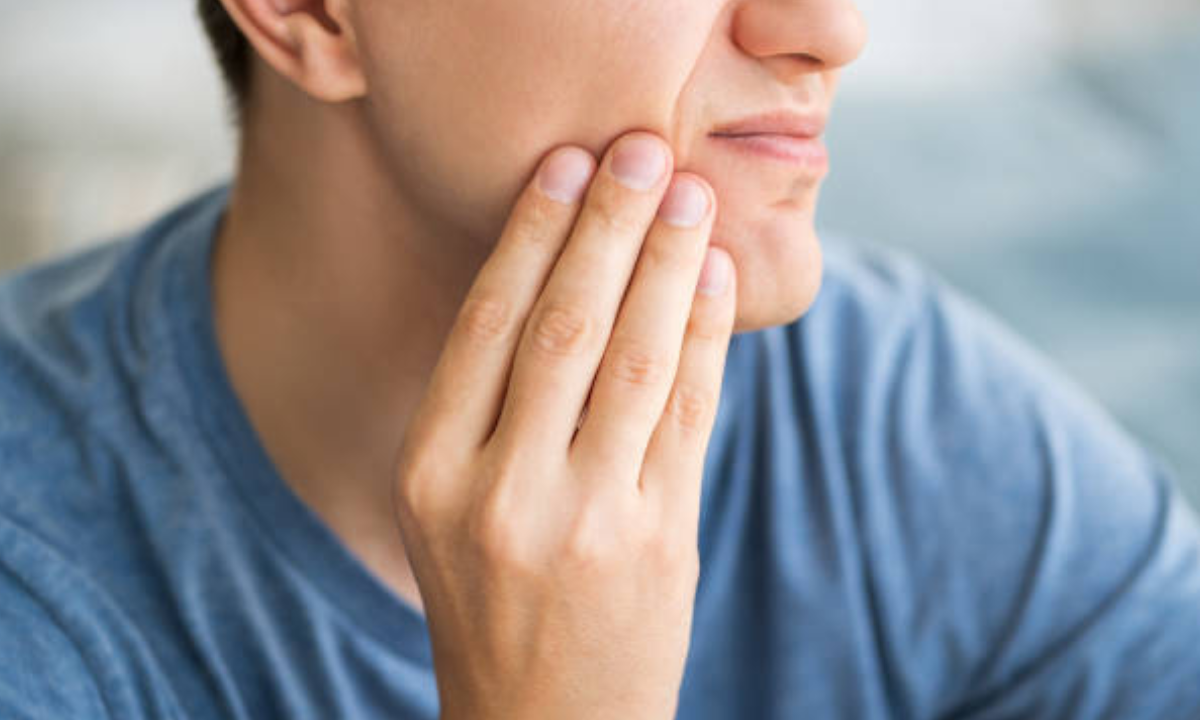Tooth sensitivity is a common dental issue that can cause sharp, temporary pain when your teeth are exposed to hot, cold, or sweet stimuli. This condition can be uncomfortable and may interfere with your daily activities, such as eating or drinking. If you’re experiencing tooth sensitivity, it’s important to address it early on before it leads to more serious dental problems. It’s a good thing that a case of sensitivity does not need to happen in the first place. Or even if it happens, it can be avoided or minimized. In this article, we are going to know five ways on how to deal with sensitivity from teeth. For persistent sensitivity, always refer to a professional dentist by searching for a dentist near you to get proper treatment.
Maintenance of Good Oral Hygiene
Good oral hygiene is the base for happy, healthy teeth and gums. Proper brushing and flossing will prevent the formation of plaque and tartar that can easily lead to tooth sensitivity. If you do not brush your teeth as often as you should or as often as you should, the enamel on your teeth will start to break down, exposing the dentin beneath-the sensitive part.
Brush Twice a Day: Use a soft-bristled toothbrush for gentle cleaning of the teeth. Brushing too aggressively or with a stiff-bristled brush can erode away enamel, which causes sensitivity.
Floss Daily: Flossing will help flush out food particles and plaque between your teeth. Flossing will thus reduce the chance of gum diseases that can cause erosion of some of the protective structure around the roots of the teeth, leaving them exposed and sensitive.
Monitor Your Diet
A right diet is crucial in maintaining dental health and preventing tooth sensitivity. Some foods and drinks are pathologists to your teeth. They weaken the enamel so that it can be sensitive to hot or cold temperatures.
Avoid acidic food and beverages: For example, citrus fruits, sodas, and wine contain chemicals, which cause the teeth to erode, making them more sensitive. Limit such food products as much as possible or wash your mouth with water after consumption to neutralize acids.
Limit sugary foods: Sugary foods cause an increase in the forming of plaque, an outcome that leads to enamel erosion and cavities. These are the common causes of tooth sensitivity.
Include calcium-rich foods: Calcium-rich foods such as cheese, yogurt, and leafy greens can help strengthen your teeth and prevent enamel erosion.
If your sensitivity is diet-related, consult a dentist in your locality for advice on how to protect your enamel and reduce discomfort.
Use Desensitizing Toothpaste
The best approach in the short term would be the use of desensitizing toothpaste. Dental products containing ingredients that inhibit the pain signal from reaching the nerves in your teeth can help prevent sensitivity.
Potassium Nitrate and Fluoride: Potassium nitrate or fluoride is commonly added to desensitizing toothpastes, and these seal the microscopic tubules in your dentin that are responsible for passing sensations on to your nerves.
Habitual application: You would have to apply desensitizing toothpaste for weeks on end to achieve the best possible result. Do not rinse with water immediately after brushing your teeth. This allows some time for the active ingredients to stay in contact with your teeth. If symptoms persist for weeks, you may have to visit the dental clinic near you to understand the underlying cause of sensitivity.
Cease or Avoid Grinding the Teeth
Teeth grinding, popularly called bruxism, can cause a whole list of dental issues. Among these issues is the sensitivity that results from constant erosion of the enamel, which then tends to expose the dentin.
Use of Mouth guard: If your teeth grinding is at night, your dentist may have you wear a mouth guard that is specifically tailor-made for you. That will help protect your teeth from the dangerous grinding effects.
Reduce Stress Levels: Stress is one of the main reasons for bruxism; thus, finding ways to manage stress can help reduce grinding and prevent further enamel wear. For example, learning to relax or doing some stress-relieving activities would greatly benefit your case. Visit a dentist near you if you suspect that bruxism is the cause of your tooth sensitivity. The solutions they can give will help protect your teeth from further damage.
Regular Check-up with the Dentist
Routine checkups by a dentist are a very important maintenance procedure to ensure good oral health and eliminate tooth sensitivity. It is therefore at these checkups that your dentist can identify and treat problems such as cavities, gum disease, or enamel erosion before they reach this level of sensitivity.
Professional Cleanings: Routine dental cleanings may help to remove plaque and tartar buildup contributing to sensitivity.
Some of the treatments dental surgeons prescribe for sensitive teeth are as follows:
Fluoride treatments: Your enamel will become weak, and your dentist will tell you about fluoride treatments that can strengthen your teeth and reduce sensitivity to them.
Gum health: Healthy gums prevent sensitivity. If you brush your teeth very hard or are suffering from gum disease, the gums might start to recede. Exposing the roots of your teeth can make your teeth sensitive. Your dentist can suggest treatments that may cure the receding gums.
If you are at Whitefield and looking to get your teeth checked, then identifying a good dentist in Whitefield will help ensure that your teeth do not give you more trouble and stay free of any sensitivity.
Conclusion
Tooth sensitivity is not a very comfortable and even at times painful condition, but with good care and attention, you can prevent it. Maintaining good oral hygiene, being watchful about your diet, using desensitizing toothpaste, not grinding your teeth, and getting regular dental checkups are all crucial factors in significantly reducing the likelihood of suffering from this condition. In case you already feel some sensitivities in your teeth, do not hesitate to consult a dentist near you to get excellent advice and treatment options.


